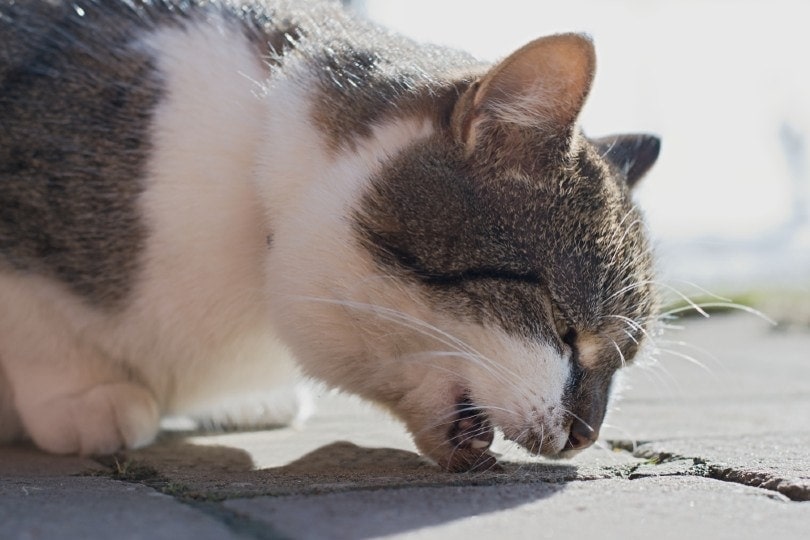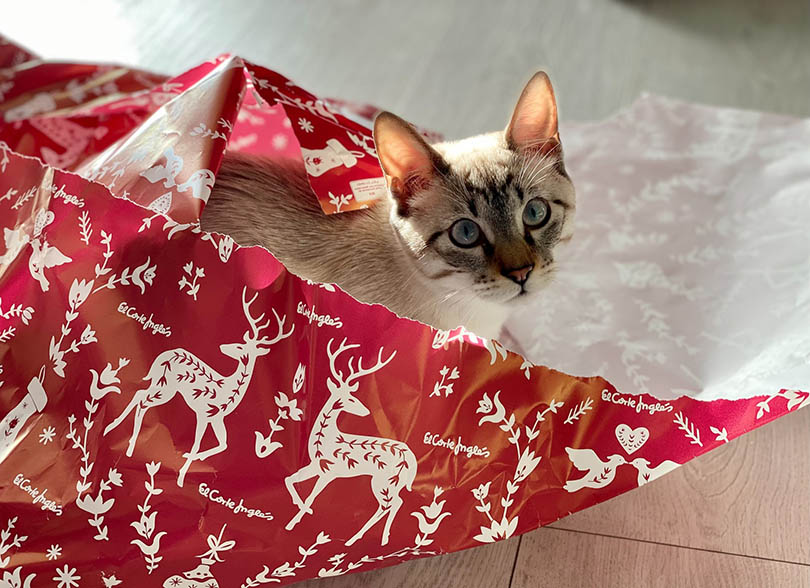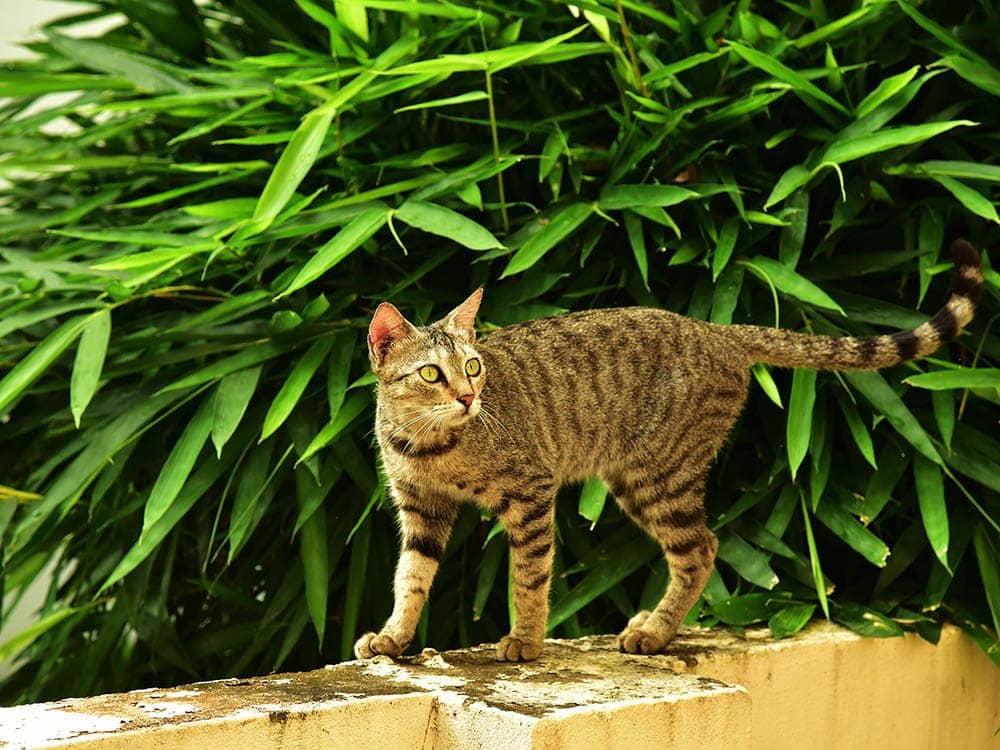Why Doesn’t My Cat Cover Their Poop? 10 Likely Reasons

Updated on
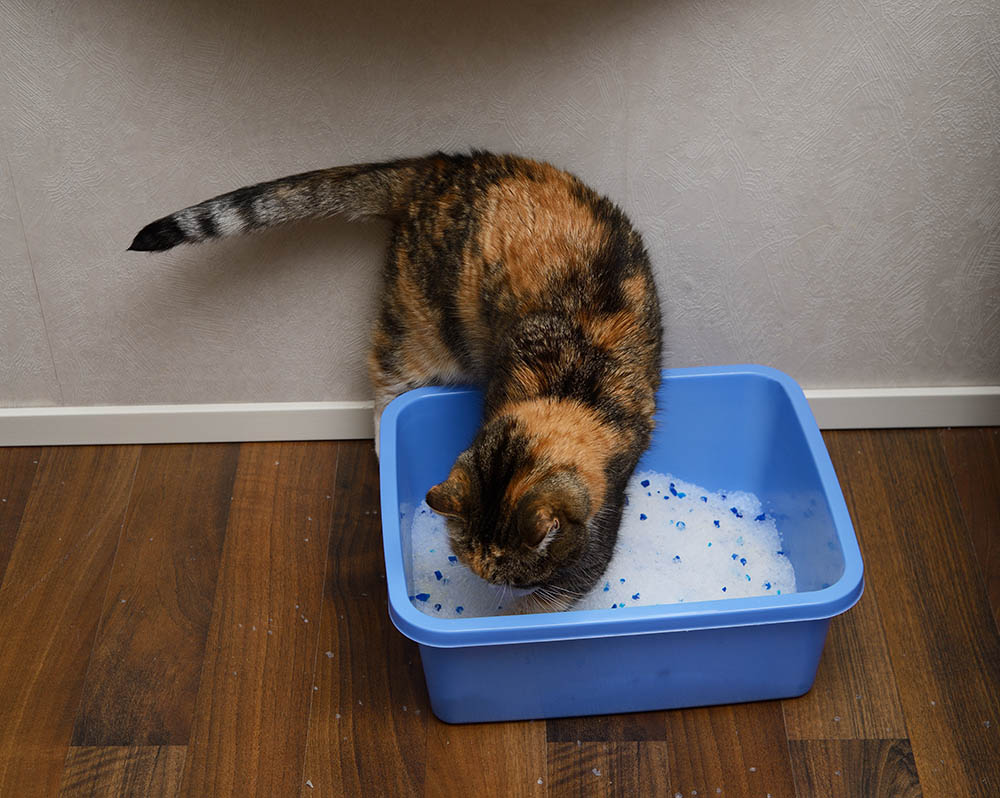
Dealing with pet excrement is a challenge every pet owner has to live with. For cat owners, they have to deal with preparing and cleaning their cat’s litter boxes. You may think that cats typically bury their poop in the litter, but sometimes, you might find your cat leaving them out in the open.
Here are 10 possible reasons why your cat isn’t burying their poop!
The 10 Reasons Your Cat Won’t Cover Their Poop
1. They Are Marking Their Territory
The feline world has a very unique way of communicating with each other. In the wild and in the outdoors, cats use their poop to mark their territory by leaving them exposed. This is a way to express dominance to keep other cats and predators away.
This reason is more common in multi-cat households, with some cats marking their territories to express their dominance over one another.
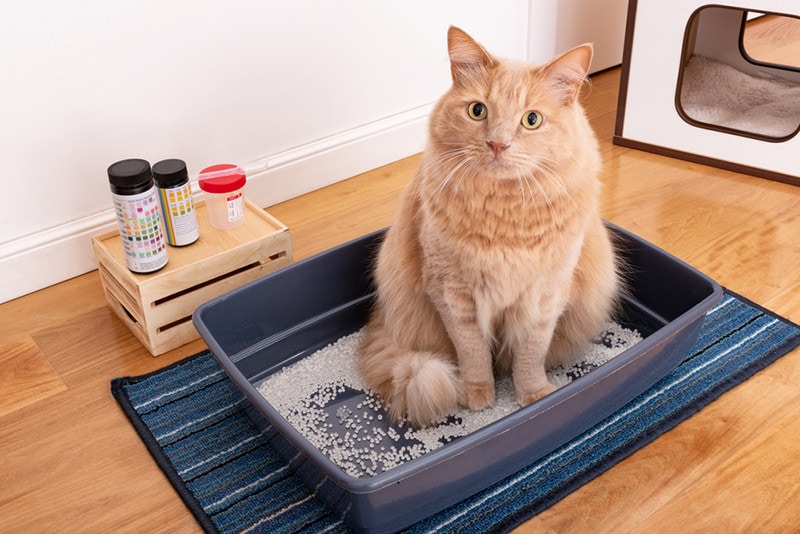
2. They Never Learned How
Burying poop is generally a modeled behavior among cats. By observation from their mother or fellow house cats, they learn to properly poop in the litter box and cover them.
Some cats, such as rescue cats that used to live on the streets, never had the need to bury their poop. Lone cats also need to learn where to poop, so cats who aren’t housebroken yet may leave their droppings outside of the litter box.
3. They Don’t Like the Litter
Believe it or not, cats can be choosy with their things. They have their own personalities as well as very strong preferences. Cat litter comes in different types. Sometimes, your cat might not be burying their droppings because they simply don’t like the type and texture of the litter being used.
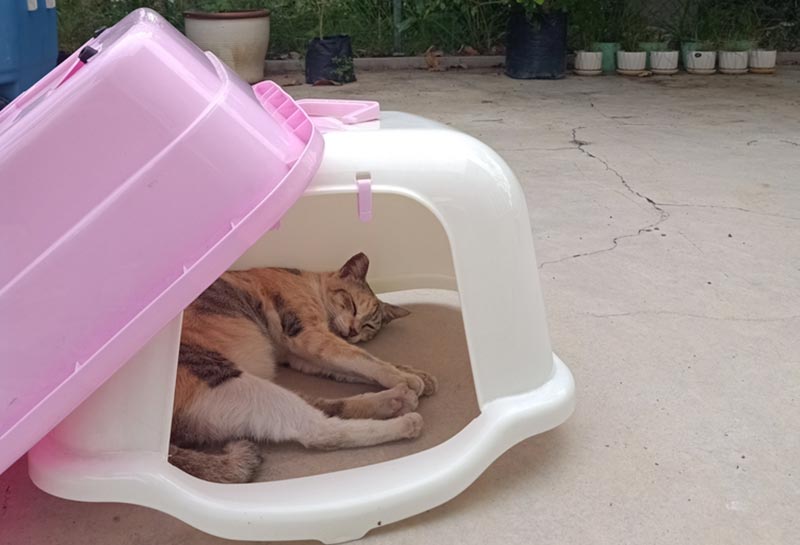
4. The Litterbox May Be Too Small
The size of the litter box is a huge factor when it comes to your cat’s potty arrangements. They have to be big enough for them to comfortably move around and settle when they do their business. If the litter box is too small, they may just leave their droppings out in the open without going through the trouble of burying them. This is a common consideration, especially for larger cat breeds.
5. They Dislike the Odor
In addition to the different types of cat litter available, cat litter can come in scented versions to mask the odor of your cat’s excrement. Although generally safe, your cat may be overwhelmed by the fragrance in the litter with their sensitive sense of smell. This may cause litter aversion, which can result in your cat leaving their poop exposed or simply pooping away from the box entirely.
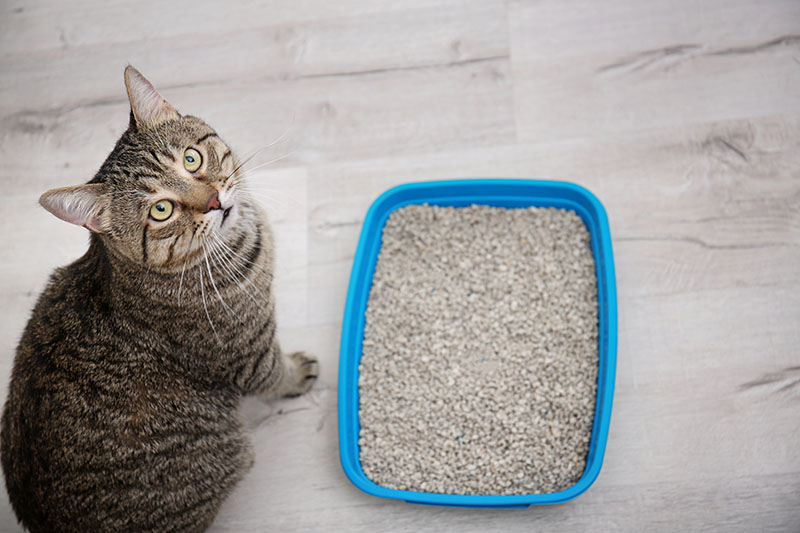
6. The Litter Box is Dirty
Another testament to a cat’s personality is their way of letting you know it’s time to clean the litter box. If the litter box is dirty and hasn’t been cleaned in a while, they may find the space uncomfortable to dig in due to the clumping and the build up of poop (even if it’s their own!). This is also a way of showing you that it’s time to clean their space!
7. Stress and Anxiety
Cats are creatures of habit. Any big change in their routine or environment can stress your cat out and cause them to be anxious. To cope, cats may exhibit changes in behavior, including excessive marking of territory. An anxious cat may leave their poop and pee exposed and leave their droppings in places around the house that they don’t normally go potty.
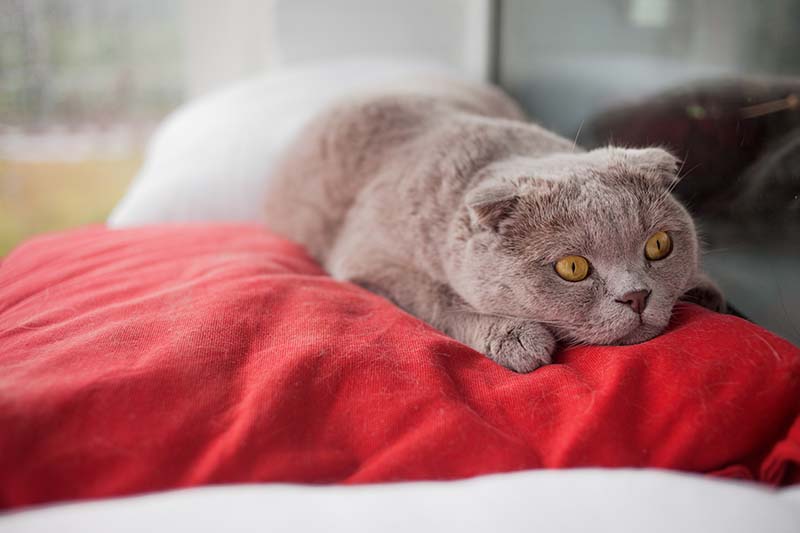
8. A Medical Issue
Cats under pain and discomfort may not go through the trouble of burying their poop. There are no specific diagnoses that cause a cat to stop covering their poop, but a cat feeling weak and lethargic may skip the burying process entirely.
Cats with cuts, irritations, or any health complication relating to the paws may stop burying their poop due to the pain.
9. Age
As cats get older, they naturally go through changes, and you might notice that their bodies aren’t as strong as they were before. Aging cats may experience mobility issues and joint pain, so you can expect your older cat to stop burying their poop.
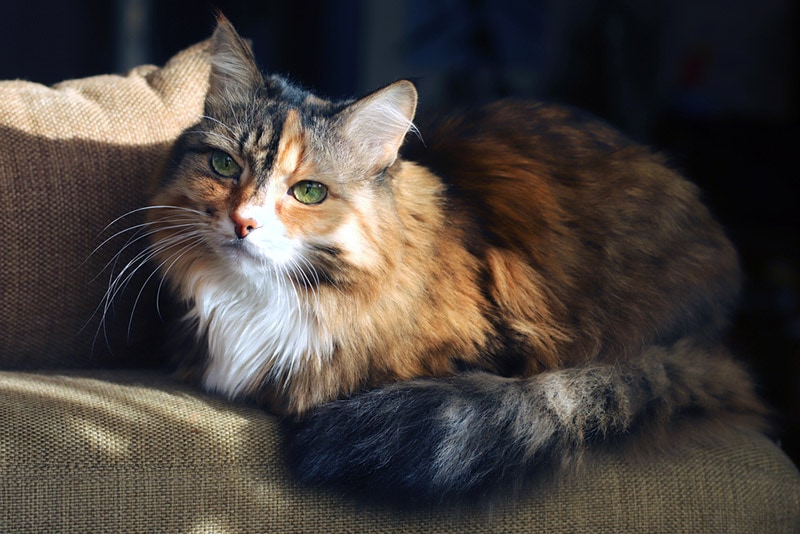
10. Natural Inclination Not to Cover Their Poo
As burying of poop is a learned behavior, there are some cats that may choose not to cover their poop. There are also some breeds that are less inclined to bury their poop, such as the Sphynx and the Bengal.
It is important to note that not all cats are the same and to understand that our cats have personalities and preferences of their own, which may include their inclination toward burying their poop or not.
Tips to Get Your Cat to Cover Their Poop
If you’ve identified why your cat is leaving their poop exposed in the litter box, then here are some ways to get them to start covering their poop.
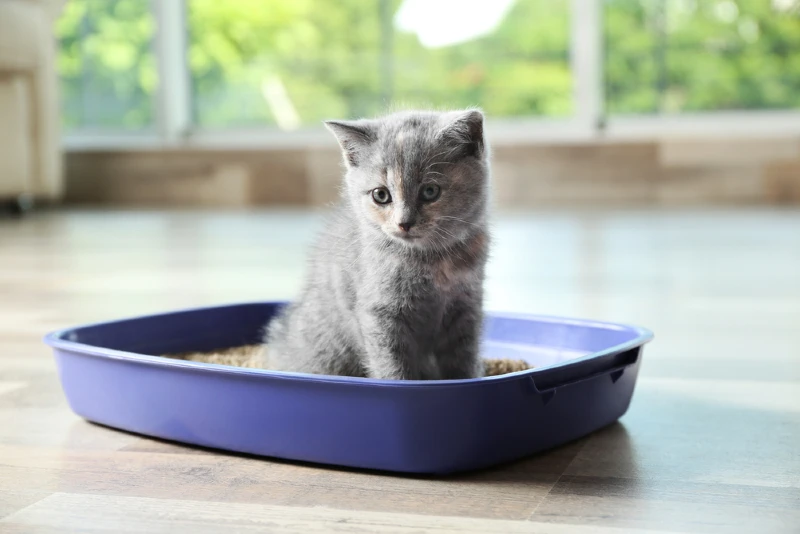
Teach and Train Them
Again, cats burying their droppings is a learned behavior. This is much easier for multi-cat households with opportunities to learn through modeling, but single cat households may need training, along with a different teaching approach.
When doing their business, you can stay with your cat and lightly pet them to show they are doing a good job. When they are done, you can use their paws to cover the poop. Giving treats and verbal praises is a good way to encourage the behavior.
Figure Out Your Cat’s Litter Preference
This may be tricky, especially through trial and error. But if your cat reacts negatively toward a specific scent, texture, or type of litter, it is best to choose a different one. Aside from the cat litter, remember to choose a litter box that is big enough for your cat to move and be comfortable within.

Reduce Stress in the Environment
If you have a stressed-out kitty, the priority is to calm them down and provide reassurance. The best way to reduce a cat’s stress is by spending time with them through play and exercise to keep them stimulated and engaged while providing reassurance.
Changes in the environment and routine is a common cause for anxiety in cats. For most households, this may be unavoidable. If your household is going through change, such as furniture rearrangements or renovations, try to provide a safe space to allow them to rest and also place their litter box. Slowly breaking them into a new routine can also help calm them down.
Increase Number of Litter Boxes Around the House
If you have a multi-cat household and your cat (or multiple cats) is leaving their poop exposed, then you might have to balance this power play by adding more litter boxes around the house.
As a safe bet, it’s best to have one litter box for each cat. This helps reduce stress and likeliness of fighting over territory. Cats are territorial creatures that value their personal space, so as cat parents, it’s best that we give it to them!
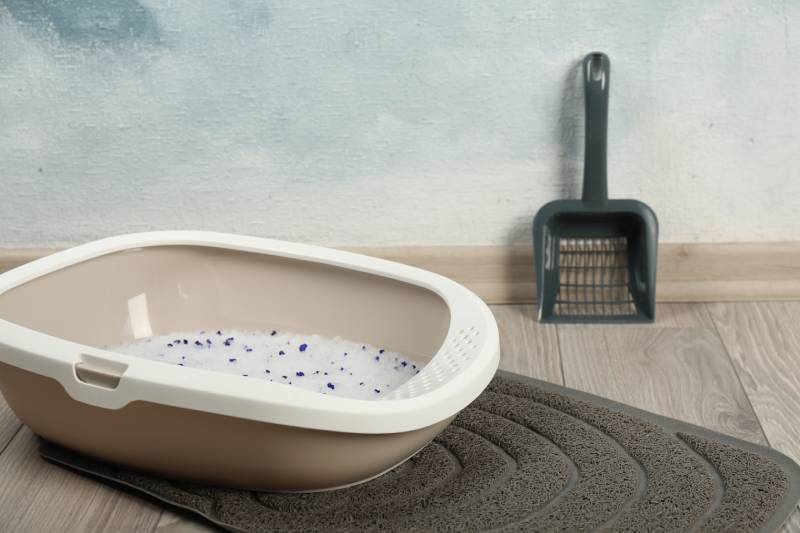
Veterinarian Consult
If you suspect that your cat is showing signs of pain, discomfort, illness, or severe changes in behavior, it’s best to seek consultation with a veterinarian. Observe and note any signs to report to your veterinarian for them to provide the proper recommendations and medical advice.
 Final Thoughts
Final Thoughts
It is well-known that cats have unusual and strange behaviors. Burying of poop is a learned behavior that most cats acquire through modeling and training—but sometimes, cats choose not to cover their droppings.
We, as cat parents, should also understand that not all cats are the same and each of them have their own preferences and personalities. It is important to identify why they aren’t covering their droppings before we can find a way to keep our houses smelling fresh and clean!
Featured Image Credit: Mikhail Olykainen, Shutterstock


